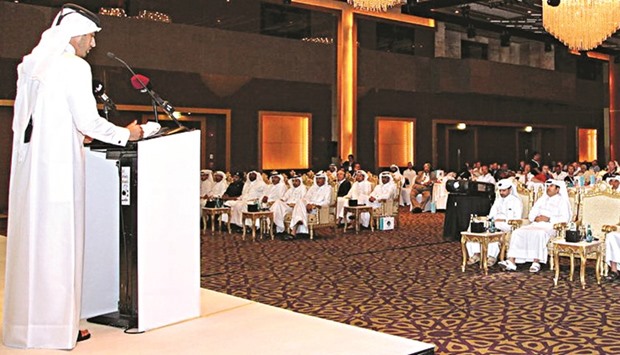The Ministry of Municipality and Environment (MME) and Maersk Oil Qatar (MOQ) hosted over 120 of the world’s experts on whale sharks and marine conservation during a three-day forum in Doha.
The International Whale Shark Conference (IWSC), held every three years, is dedicated to understanding and protecting the world’s whale shark populations.
It is a vital forum for exchanging key knowledge and research and for devising ways of preserving the health of the species globally.
More than 65 papers were presented during the conference which covered subjects ranging from physiology, reproduction and whale shark behaviour to ecology, population structure and conservation.
“As a responsible offshore operator Maersk Oil Qatar is committed to understanding and preserving Qatar’s rich marine environment and we are proud to be developing Qatar’s role in international research through our involvement in this event,” said Abdulrahman al-Emadi, head of the Maersk Oil Research and Technology Centre (MO-RTC).
“Marine conservation is one of the MO-RTC’s core research areas through which we are committed to the preservation of our natural environment for future generations,” he said.
The Qatar Whale Shark Research Project (QWSRP) special project manager Mohamed al-Jaidah stated that the conference brought some of the world’s leading scientists together to collaborate and share information and findings critical to the field of studying whale sharks.
“I think the most significant outcome achieved through this conference is the effort to bring researchers together in order to present results from previous studies conducted. This is in addition to introducing various technologies to study the marine biodiversity in Qatari waters as well as the latest methods in obtaining the DNA of aquatic creatures.”
Qatar has one of the largest aggregations of whale sharks in the world, located offshore in the Al Shaheen field.
This discovery back in 2010 prompted the launch of the QWSRP, a partnership between the MME, Maersk Oil Research and Technology Centre and Heriot Watt University to learn more about the species.
The results of the five-year research study were revealed at the International Whale Shark Conference, contributing to Qatar’s growing importance as a hub for whale shark research.
The visiting delegates learned more about the ongoing research within the host country through presentations from QWSRP researchers Steffen Bach, senior environmental adviser at the MO-RTC and David Robinson from Heriot Watt University.
Steffen Bach commented: “Through satellite tagging and monitoring, research has shown that these gentle giants migrate through vast oceanic distances and are attracted to the waters of the Gulf to feed on plankton and other small pelagic animals, the abundance of which can be attributed to artificial reefs developing under the offshore platforms developed by MOQ in the Al-Shaheen field.

Al-Emadi addressing the forum.
